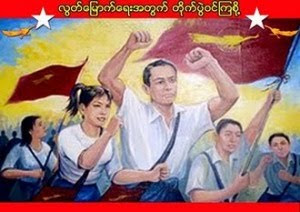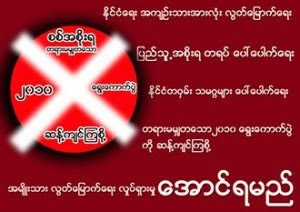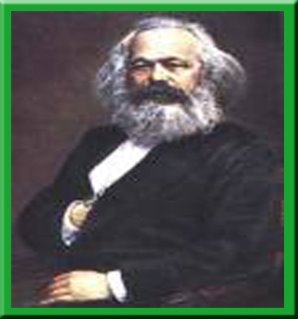Rawls’ theory and inheritance policy
Introduction
In designing policy measures to increase social welfare, both criteria of efficiency and equity must be considered. Equity means fairness or justice and Rawls’ theory of justice plays an important role in the debate over these economic and social policy measures.
Rawls accept the notion that a ‘just’ criterion of social welfare must be one that a rational person would choose if she were ‘fair-minded’ (Jeble & Reny, 2001: 259) For Rawls, a defensible justice means ‘justice as fairness’.
There are a lot of areas in which differing notions of fairness translate directly into different policy conclusions. According to Rawls, bequest and inheritance are viewed as just and fair. He says, “The unequal inheritance of wealth is no more inherently unjust than the unequal inheritance of intelligence” (Rawls, 1999: 245)
In this essay, I would like to discuss about Rawls’ theory and its notions of fairness. Moreover, reasonable policy conclusions of inheritance will be analyzed and the right policy will be drawn out.
Rawls’ theory
The choice among social welfare functions involve a choice between sets of ethical values and the literature in economics and philosophy have combined to consider the moral character of that choice. Rawls’ theory revives a third tradition of ethical theory of the social contract after discovering the strengths and weaknesses of two major traditions, i.e. utilitarianism and intuitionism.
Rawls argued that utilitarianism treats individual human beings as so many dimensions along which happiness can be distributed rather than as autonomous moral agents each independently pursuing a freely chosen course of action with reasonable and dignity (Wolff, 1976:13) Also, intuitionism cannot exhibit no structure of practical reasoning although it claimed that each has a power of ‘moral intuition’ called rational.
Due to these weaknesses, Rawls turned to a third school called contractarian tradition. The main essence of this tradition of the social contract focused on the problems of the nature and legitimacy of authority rather than with substantive problems of social policy and distributed justice. Rawls revived a version of this third tradition as a way of discovering a media between the first two traditions.
Rawls’ theory discussed the principles of justice that would be chosen in the original position. It applies two principles and the first principle guarantees a maximal system of equal basic liberties while the second (difference principle) distributes all social goods allowing inequalities in them.
Rawls view the choice problem in the original position as one under ignorance and he argued that a rational person would order social states according to how he or she would view them were they to end up as society’s worst-off member in total ignorance if we assume people are risk averse (Jehle & Reny, 2001:259)
Rawls claimed that there are three conditions holding in the original position such that
there is no way to assign probabilities to the outcomes;
any improvements over the maximin level are relatively unimportant, and
any shortfall below the maximin level would be disastrous (Laden, 1991:216)
In fact, Rawls’ arguments for the Maximin decisions are appealing in various debates of strategic situations over policy issues.
Notions of fairness
For Rawls, the principle of fairness holds that a person is required to do his part as defined by the rules of institution when two conditions are met such as the institution is just or fair, that is, it satisfies the two principles of justice; and second, one has voluntarily accepted the benefits of the arrangement or taken advantage of the opportunities it offers to further one’s interests. (Rawls, 1999:96)
He also claimed that the requirements specified by the principle of fairness are the obligations and its characteristic features include
Obligations arise as a result of voluntary acts that may be the giving of express or tacit undertakings, such as promises and agreements, but they need not be, as in the case of accepting benefits;
The content of obligations is always defined by an institution or practice the rules of which specify what it is that one is required to do and
Obligations are normally owed to definite individuals, namely those who are cooperating together to maintain the arrangement in question (Rawls, 1999: 97)
These notions of fairness were translated directly into different policy conclusions in most areas such as tax structure, land use, planning and specific rules like eminent domain or the laws governing inheritance. In this essay, I will take the example of inheritance.
Inheritance
Generally, inheritance can be defined as the acquisition of a possession, condition or trait from past generations. Economic studies show that inheritance generates inequality of opportunity, especially the inheritance of wealth or capital. Brittain (1978) identified two primary factors of wealth inequality as independent accumulation of saving out of earnings and the going return on it and extraordinary returns on investment as well as inheritance (intergenerational), including both gifts and bequests and the going rate of return on them. (Brittain, 1978:9) In practice, inequality reflected by inheritance was viewed as a more fitting target for redistributive policies than inequality reflected by independent individual performance.
Stamp also argued that inheritance would be one of the fundamental institutions of modern life due to the considerations of the inextricably bound up with the inequality of incomes and wealth, the satisfaction of fiscal needs, the essence to the accumulation of capital resources and the theory of socialism (Stamp, 1926:339) In fact, inheritance invites attention because the extent to which inherited advantage is perceived as unfair varies and different notions of fairness leads to various kinds of policy conclusions.
Policy conclusions
Policy issues related to inheritance are debatable due to the importance of nonobjective considerations and untouchable institutions. Brittain identified four ways in which success tends to be inherited as parental pull i.e. success depends on whom you know rather than what you know; bequests of material wealth, superficial characteristics such as styles of speech and dress and finally, real productivity. (Brittain, 1977: 7) Indeed, these should be considered to formulate public policies in turn. The main essence is to identify the underlying causes of head starts and handicaps in life and create a strong case for redistribution in terms of various policies, including taxation.
Economic studies show that the institution of inheritance may equalize the distribution of wealth in the long run by deriving models with various forms of bequest behavior (eg. Stiglitz 1978; Laitner 1979, Atkinson 1980; Loannides and Sato 1982) However, many economists find it difficult to justify the reward to material inheritance as well as to formulate an appropriate policy toward the inheritance of real productivity.
Despite, some reasonable policy conclusions were remarked by economists as follows:
Although the child has no choice for the head started- parental pull, the effects of this unfairness should be diminished as much as possible and a progressive income tax represents one of the policy conclusions.
There should be high income taxes on completely unearned inheritances because benefits of material wealth without any productivity must be reduced. In capitalist economy, it can be done either by pre-inheritance wealth and estate taxes or by inheritance taxation
For superficial characteristics, it should be equalized by after-the-fact redistribution
For real productivity, inequality should be reduced by taxation. (Brittain, 1977: 32)
The above policy conclusions clear show the role of taxation in inheritance. In UK, inheritance tax was levied at a staggering 40% on all estates worth more than £300,000. Max West claimed inheritance tax as a part of the fiscal system and indicator of democracy because democratic countries are the principal home of highly developed inheritance taxes. (West, 1893:444) On the extreme spectrum, Karl Marx proclaimed that the communist revolution would effect the abolition of all right of inheritance. (Marx, 1948) However, there are a lot of voices against this inheritance tax by claiming as an unfair tax. Dalton claimed inheritance tax as an unfair due to its application to assets which themselves have been acquired from earned income that is already taxed. (Dalton, 2006:4) In recent years, it was under attack from both right and left ideologies.
As mentioned, most of the debates over inheritance issue are primarily based on notions of fairness. In one point, people see inheritance as unfairness and policy makers tried to solve this by formulation appropriate policy issues mainly via taxation. To the contrary, people see inheritance tax as an unfair tax in turn. It leads to the question of what is right.
What is right?
A theory of economic justice which does not make a place for the enjoyment of underserved good fortune is unacceptably incomplete. For Rawls, it can be argued that he makes a place for undeserved good fortune with the permission whenever two principles of justice are met. (Becker, 1979: 389) If Rawls’ theoretical claims for fairness were considered as right, the current policy conclusions that designed to reduce inequality should be abolished because the differing principle distributes social goods allowing inequalities in them.
In contrast, there has a long tradition of political thought arguing that the state should act to regulate the transfer of wealth across the generations to reconcile the inequality issues generated by the market economy. However, it can be argued that redistributive policies over inheritance are not the only solutions. This long tradition has kick-started by new policy initiatives such as Child Trust Fund, the Saving Gateway, etc.
Conclusion
In conclusion, inheritance is exactly a problem of just and fair distribution and the effectiveness of reasonable policy conclusions depend on different ideological roots of philosophical, political, economic and ethical issues.
Khin Ma Ma Myo (2007)
References
Becker, L. (1979) “Economic Justice: Three problems”, Ethics, Vol. 89. N0.4 (July.1979) pp.385-393
Brittain, J. (1978) Inheritance and the Inequality of Material Wealth, Brookings Institution, Washington D.C
Brittain, J. (1977) The Inheritance of Economic Status, Brookings Institution, Washington D.C
Jeble, G.A. & Reny, P.J. (2001) Advanced Microeconomic Theory, 2nd edition, Addison-Wesley, London
Laden, A. (1991) “Games, Fairness, and Rawls’s A Theory of Justice”, Philosophy and Public Affairs, Vol.20, No.3 (summer, 1991), pp. 189-222
Marx, K. (1948) Manifesto of Communist Party in Tucker (ed.) The Marx-Engels Reader, pp.335-352 (1972)
Rawls, J. (1999) A Theory of Justice, Revised edition, OUP, Oxford
Stamp, J. (1926) “Inheritance as an economic factor”, The Economic Journal, September, 1926, Vol. 36, No.143, pp.339-374
West, M. (1983) “The Theory of the Inheritance Tax”, Political Science Quarterly, Vol.8, No.3 (Sep, 1983) pp.426-444
Wolff, R.P. (1977) Understanding Rawls: A Reconstruction and Critique of A Theory of Justice, Princeton University Press, Princeton



































